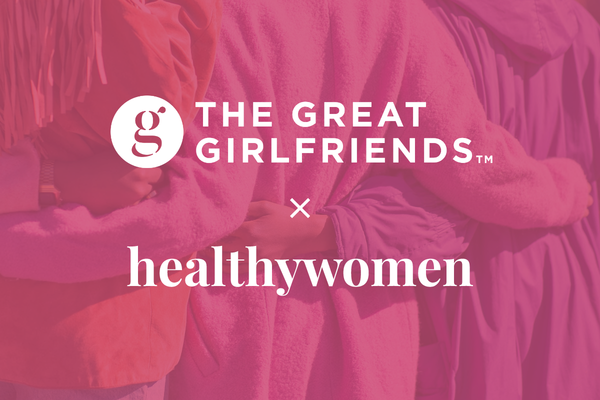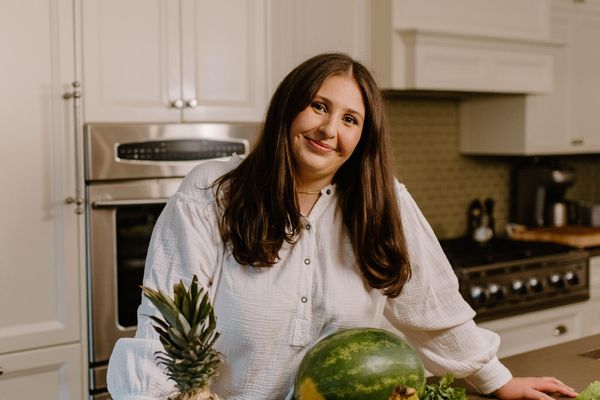Here are my predictions for the top six health trends you'll be seeing in 2020. But first, a look back at the top health trends for 2019, which included:
- Intermittent fasting
- Essential oils
- Healthy food delivery (think Door Dash, Blue Apron, etc.)
- Virtual exercise coaching
- Apps to track everything from your heart rate and sleep to your periods
Now, it's a whole new year and this is what you'll be seeing in the coming months.
1. Mindfulness. Yes, you've heard all about it, and maybe you've thought about meditating and possibly using an app to get you started. Now that the concept of mindfulness and meditation are peaking, people are more aware and now ready to give it a try. Why now?
People of all ages are complaining of burnout, stress and over-productivity. We're constantly connected with time-saving apps, sites and services. You know what I mean—from using Uber or Lyft to get to the airport to having an app for every store you visit, virtually or in person.
We are efficient and more productive now than ever before. We are accomplishing more in the morning that we used to in a month. That leaves many of us feeling more and more exhausted. The remedy: mindfulness and/or meditation. Read more about Moving Into 2020 With Mindfulness.
2. Gut biomes. Really! There's a universe of microbes inside your digestive system that influences every aspect of your life, from how fast you burn calories and your mood to whether your immune system is high-functioning and what your likelihood is of living a long, healthy life. And more people are starting to pay attention to their gut biome.
What's the best way to nourish your biome?
Your biome loves the following foods:
- Yogurt
- Blueberries
- Granola, bran, and fiber
- Whole grains
- Avocado
- Kale
- Zucchini
- Carrots
- Beets
- Lettuce
- Plant-based oils, such as olive, avocado, walnut and sesame
3. Heartbeat variability. Your heart health continues to be a priority, but you may be surprised to learn that your heart rate variability that matters; that is the spikes in heart rate that are above your resting heart rate. This beat-to-beat variability is an indirect indicator of your stress and cortisol levels. Understanding the spikes in heart rate is an important indicator of your heart health.
4. Coronary artery calcium scores. We are going beyond just measuring the cholesterol levels in your blood. Look for your health care provider to order a coronary artery calcium score. This measures the amount of thickening from calcification in the teeny tiny coronary arteries that nourish the heart. It can help determine whether you are at risk for heart disease and would benefit from taking medications or other treatments.
5. Plant-based (not plant exclusive) diets. Antioxidants here we come. The emphasis is on lots and lots of vegetables, whole grains, fruits, healthy oils and plant-based fats, with a little bit of dairy and animal-based protein.
There is more and more recognition that our previous emphasis on low fat meant that people were hungry, and when they didn't feel full, they compensated by consuming a lot more carbs than they needed, leading to weight gain, diabetes and heart disease.
Look to the Blue Zones Kitchen for recipe ideas from the Blue Zone areas of the world, where people live very long, healthy lives and typically follow a plant-based diet. Learn more about How to Increase Plant-Based Foods in Your Diet.
6. Sleep monitoring. Thanks to wearable fitness devices and smart watches, people can monitor their sleep and the stages of sleep. Guess what? Few people get enough delta wave sleep, the deep restorative sleep. Insufficient delta sleep leads to crankiness, low productivity and other problems. Time to get on the sleep train.
Having trouble getting to sleep? It takes about three weeks to retrain yourself to go to sleep earlier and sleep deeper. How? You probably know to turn off your screens well before bedtime. Here are more tips:
- Use eyeshades to block the light.
- Try a weighted blanket or the do-it-yourself version: use several blankets layered under a comforter.
- Take melatonin supplements; try 2 to 3 milligrams per night for a few nights.
- Play a guided meditation. Start with 30 to 60 minutes or more to help your mind relax; after about a week, your brain will have set up new neural pathways to sleep so that 5 to 10 minutes of the same guided meditation will get you to dreamland.
- Use earplugs, if noise bothers you. The ones made of wax are the most effective.
This blog originally appeared on Nurse Barb. Barb Dehn is a women's health nurse practitioner, award-winning author and nationally recognized health expert. She practices with Women Physicians in the Silicon Valley of California.







